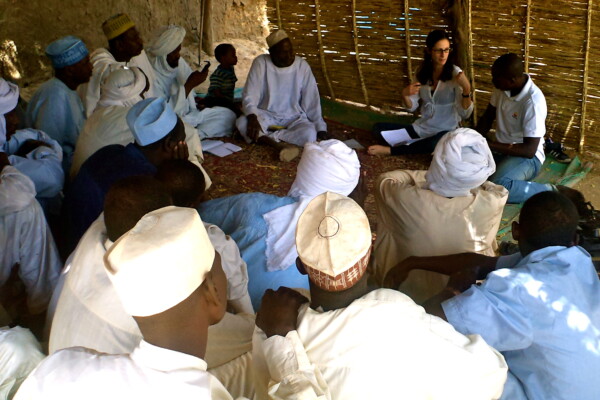
Practice What You Preach: Theory and Practice of China National Petroleum Corporation (CNPC)’s Stakeholder Engagement Plan in Chad
December 11, 2013The past decade has seen a staggering increase in Chinese investment flows in Africa, leaping from USD 392 million in 2005 to USD 2520 million in 2012. Although there is a growing understanding that China’s impact on sub-Saharan Africa is far-reaching and complex, and that Chinese investments on the continent are highly diversified, the majority of business & human rights analysts have tended
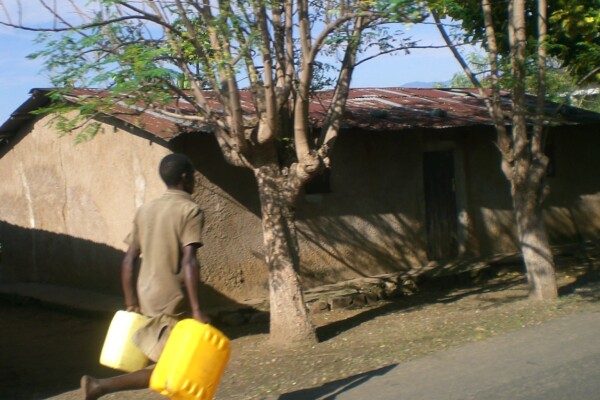
In search of clean water: human rights and the mining industry in Katanga, DRC
November 26, 2013Today, around 1,8 billion people in the world do not have access to safe water. In the Democratic Republic of the Congo, the most water-rich country in Africa, 51 million people lack access to potable water; only 26% of the population has access to safe drinking water. This is one of the lowest access rates in the world. In the Katanga province, rich in cobalt and copper, some industrial mining co

IPIS Insights: Kimberley Process: observations from the sidelines. Part I
November 20, 2013Ten years after the launch of the Kimberley Process Certification Scheme (KPCS) this paper is the first in a two part series providing an overview of where the Kimberley Process and international efforts to combat the trade in conflict diamonds currently stand. It will analyse some of the present challenges facing the system and some of the potential solutions on the table. This part (Part I) will
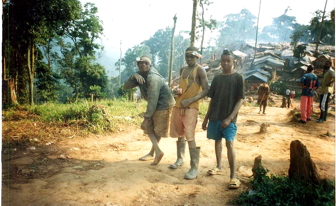
Travail des enfants dans le site minier d’exploitation artisanale de Bisie en territoire de Walikale. Une crise oubliée en République Démocratique du Congo
November 19, 2013Plus de deux décennies après l’entrée en vigueur de la Convention relative aux droits de l’enfant (1989) en République Démocratique du Congo (RDC), la situation des enfants dans le territoire de Walikale demeure critique. Certes, le travail des enfants est un problème mondial, mais c’est essentiellement dans les pays en développement qu’il compte la grande majorité. L’expérience montre que le défi
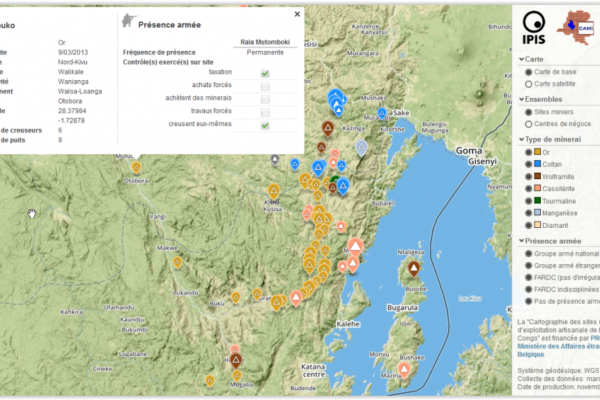
Analysis of the interactive map of artisanal mining areas in Eastern DR Congo (2013)
November 13, 2013In August 2009 the ‘International Peace Information Service’ (IPIS) published a first map of militarised mining areas in Eastern DR Congo. By 2012, the international interest in the issue had grown but the map was out-dated. To find a structural solution, IPIS sat down with the Congolese mining cadastre (CAMI) and agreed to set up a permanent system to monitor artisanal mining activities and the i
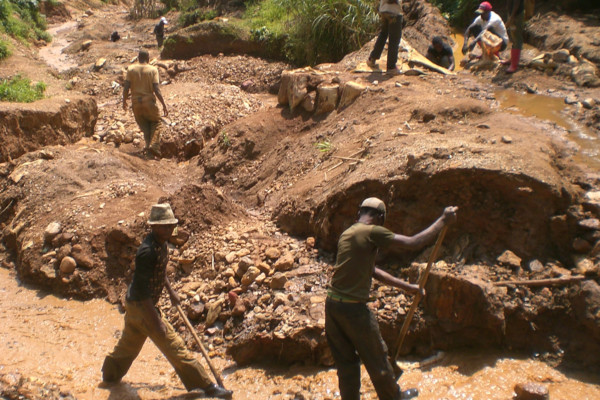
‘Conflict Minerals’ initiatives in DR Congo: Perceptions of local mining communities
November 12, 2013The exploitation of minerals is an important source of income for many communities in eastern Democratic Republic of Congo (DRC). Yet this mineral wealth also plays a significant role in the continuation of insecurity in parts of the country. Revenues from mineral trade have given armed groups the means to operate, and provided off-budget funding to (often poorly paid) state security forces. Whils

IPIS Insights: Why businesses should assess human rights impacts from the outset of projects. SOCO International Oil Company in Virunga National Park, DRC
August 5, 2013SOCO International, a British oil company, is prospecting for oil in the Democratic Republic of Congo’s Virunga National Park – a World Heritage Site. For the past year, their presence has been criticised for putting a fragile environment at risk. However, more recently, their impact on human rights has also been questioned. Below, IPIS looks at why it is so vital for companies to employ rights-re

Strijd tegen conflictmineralen: sleutel tot conflictresolutie in Oost-Congo?
July 24, 2013De PDF van dit artikel is met toestemming van de redactie overgenomen uit de /Internationale Spectator, Clingendael Magazine voor Internationale Betrekkingen/, uitgegeven door de Koninklijke Van Gorcum, te Assen namens het Nederlands Instituut voor Internationale Betrekkingen ‘Clingendael’ te Den Haag. Download in pdf of open met issuu reader. http://issuu.com/ipisresearch/docs/20130700_is_art_mat
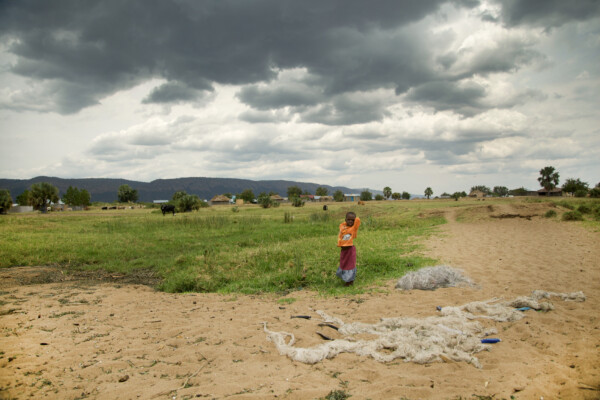
Business, Human Rights, and Uganda’s Oil. Part I: Uganda’s oil sector and potential threats to human rights
July 12, 2013The following report is the first of a series of four collaborations between IPIS Research and ActionAid International Uganda. The series sheds a light on the oil sector in Uganda, its possible impact on human rights, and how government, companies, and civil society can best enable a positive bond between oil and the welfare of the Ugandan people. This first report opens by providing a situational
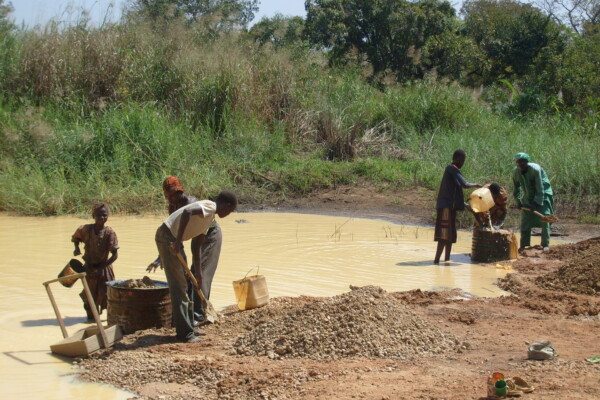
Gold and diamonds in the Central African Republic. The country’s mining sector, and related social, economic and environmental issues.
March 29, 2013Gold and diamonds in Central Africa easily conjure up images of conflict, rebel funding, human rights violations, and smuggling. As a country landlocked within an unstable region, neighbouring the Democratic Republic of Congo (DRC), and recently the scene of another coup, the Central African Republic (CAR) might be considered an appropriate candidate for analysis within the conflict-mineral perspe

Upstream Implementation of the OECD Due Diligence Guidance for Responsible Supply Chains of Minerals from Conflict-Affected and High-Risk Areas. Final Report on one-year pilot implementation of the Supplement on Tin, Tantalum, and Tungsten
January 1, 2013Final Report on one-year pilot implementation of the Supplement on Tin, Tantalum, and Tungsten. This report is the final in a cycle of three reports on the pilot implementation by upstream companies of the “Supplement on Tin, Tantalum and Tungsten of the OECD Due Diligence Guidance for Responsible Supply Chains of Minerals from Conflict-Affected and High-Risk Areas”. The goal of the report is to p
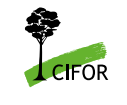
The formalisation of artisanal mining in the DRC and Rwanda
December 29, 2012This report describes and evaluates initiatives to formalise the artisanal mining sector in the Democratic Republic of the Congo (DRC) and Rwanda, in order to locate lessons learned. We hope that these perspectives will support the formation of well-informed policy and regulatory options – both by the EU and by harvesting countries – concerning the formalisation of timber production in tropical co
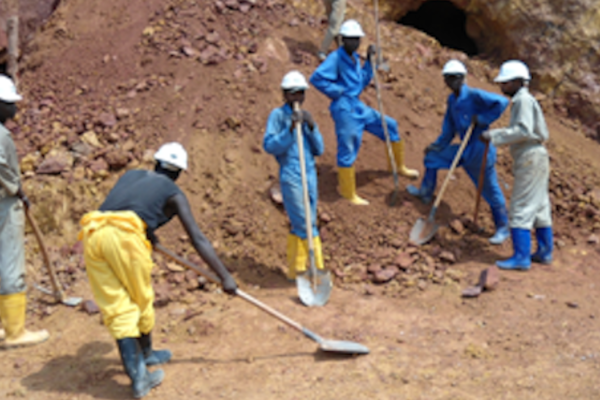
Exploitation minière industrielle et artisanale au Sud-Kivu. Possibilités d’une cohabitation pacifique ?
December 29, 2012Le secteur minier en République Démocratique du Congo (RDC) en général et au Sud-Kivu en particulier alimente toujours les débats tant au niveau international qu’au niveau national. Présenté sous plusieurs facettes, ce secteur au Sud-Kivu a été dans le temps industriel, puis artisanal et aujourd’hui il est en même temps artisanal et industriel. Le retour en force, ces dernières années, des société
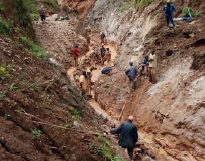
Mapping Conflict Minerals (2012)
December 28, 2012How GMES supports the International Peace Information Service (IPIS), in: Window on GMES, Special Issue: Discover the “S” in GMES, pp. 82-88 Exploitation of natural resources has, in most cases, a strong impact on the environment, often even spoiling natural habitats and affecting people’s way of life. The exploitation and trade of minerals can also fuel armed conflicts, as it is the case in the E

Upstream Implementation of the OECD Due Diligence Guidance for Responsible Supply Chains of Minerals from Conflict-Affected and High-Risk Areas. Cycle 2 Interim Progress Report on the Supplement on Tin, Tantalum, and Tungsten
June 20, 2012Cycle 2 Interim Progress Report on the Supplement on Tin, Tantalum, and Tungsten. The following report is the second in a cycle of three on upstream companies’ implementation of the Supplement on Tin, Tantalum and Tungsten to the OECD’s Due Diligence Guidance for Responsible Supply Chains of Minerals from Conflict-Affected and High-Risk Areas. The objective of the following is to report on progres
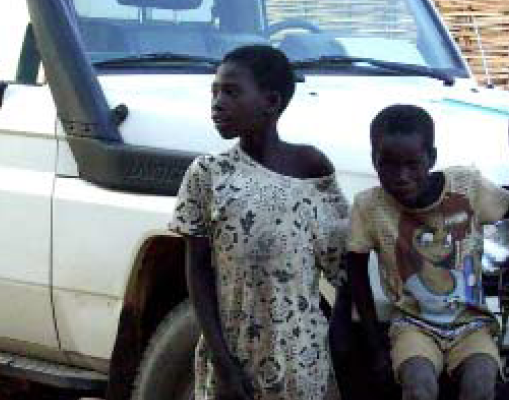
A Taxonomy of Non-State Armed Actors in the Central African Republic (2012)
January 2, 2012This report hopes to provide an overview of how the Central African Republic got to where it is now, as well as to present the means to further our understanding of the current situation. First a genealogy of the current situation is provided, which is presented in the form of a narrative literature overview encompassing the postcolonial period. This is followed by a brief account on the main conf
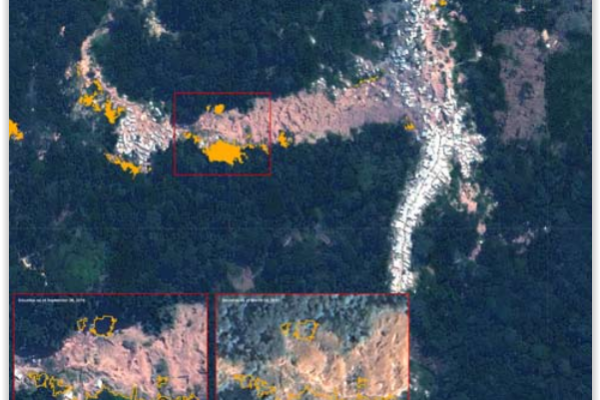
Bisie. A one-year snapshot of the DRC’s principal cassiterite mine (2011)
November 28, 2011Much has happened in the mining sector of Eastern DRC over the last year. President Kabila imposed a ban on all mining activities last fall, during which production fell considerably. As soon as the suspension was lifted in the spring of this year, the major global electronic companies stopped buying minerals from the region, provoking a de facto embargo on Congo’s minerals with detrimental effect

Upstream Pilot Implementation of the OECD Due Diligence Guidance for Responsible Supply Chains of Minerals from Conflict-Affected and High-Risk Areas
November 1, 2011Baseline Report on the Supplement on Tin, Tantalum, and Tungsten IPIS executed the research for and the writing of this OECD report. The present baseline report is the first in a cycle of three reports on the implementation by upstream companies of the Supplement on Tin, Tantalum and Tungsten of the OECD Due Diligence Guidance for Responsible Supply Chains of Minerals from Conflict-Affected and Hi
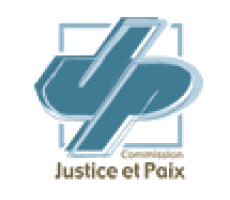
Kenya’s role in the trade of gold from eastern DRC
August 5, 2011On 11 September 2010, the Congolese Ministry of Mines put out a statement in which it announced President Kabila’s decision to suspend all exploitation and export of minerals from the provinces of North Kivu, South Kivu and Maniema until further notice. The statement explained that the ban was intended to put a stop to the illegal exploitation of natural resources in eastern DRC. In the decree est
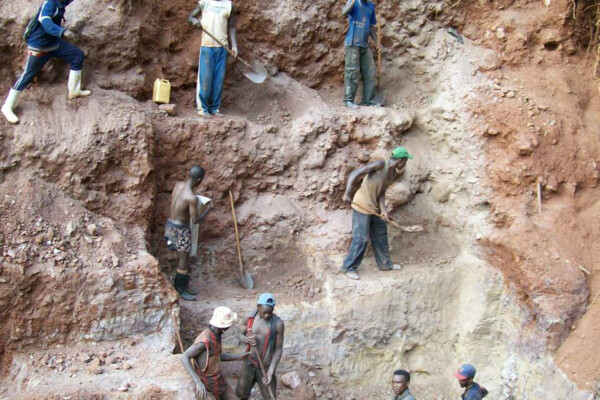
Guide to Current Mining Reform Initiatives in Eastern DRC
April 17, 2011US legislation has brought on a variety of initiatives aiming at mining reform in EDRC. This paper describes the basic elements of these initiatives, their genesis, the current state of affairs, the inkages between the initiatives and the main challenges they face. Further, the paper briefly evaluates the initiatives while focussing on the steps ahead. Download in pdf or open with issuu reader. ht

